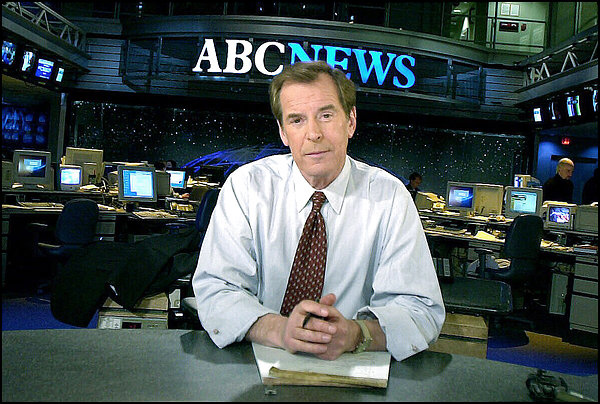DEMOCRACY
by
Chris Maser
Democracy is the worst form of government except all those other forms that have been tried from time to time. — Winston Churchill
Understanding the fundamental processes of democracy is critical if people are to see the value of their participation in making this form of government work, because its founding principles function only when the attending processes are actually used. Moreover, democracy is the backbone of social-environmental sustainability. It's thus critical to understand something about democracy as a practical concept.Democracy, another word for self-directed social evolution, is a system of shared power with checks and balances, a system in which individuals can affect the outcome of political decisions. It's designed to protect individual freedoms within socially acceptable relationships with other people, individually and collectively. People practice democracy by managing social processes themselves.
Democracy is built on the concept of inner truth, which in practice is a tenuous balance between morality and materialism. One such truth is the notion of human equality, in which all people are pledged to defend the rights of each person, and each person is pledged to defend the rights of all people. In practice, however, the whole endeavors to protect the rights of the individuals, while the individuals are pledged to obey the will of the majority, which may or may not be just to each person.
The "will" of the majority brings up the notion of freedom in a political system. Nothing that I know of in the Universe is totally free; rather, everything expresses freedom within the relativity of limits. Just as there is no such thing as a truly "free market" or an "independent variable," so are individual and social autonomy protected by moral limits on the freedom within which individuals and society can act.
Eighteenth-century British philosopher and statesman Edmund Burke saw government as a contract between "those who are living, those who are dead, and those who are to be born." Those "possessing any portion of power," says Burke, "ought to be strongly and awfully impressed with an idea that they are in trust." In Burke's contract, freedom is "that state of things in which liberty is secured by the equality of restraint," and not one in which "every man was to regulate the whole of his conduct by his own will."
Although no human is completely free, each possesses the potential capability of self-transformation in the direction of fuller freedom. Beyond this, the quality of a democracy is based on the level of psychological maturity one exhibits through their respect for others in an exchange of ideas, wherein people listen to one another's points of view, not as an invitation to debate but rather as different and valid experiences in a collective reality. While at times we must agree to disagree, we must also learn to accept that one's own perspective, and their perception within that perspective, is each person's truth—whether we agree with it or not.
When these things happen, people are engaged in the most fundamental aspects of democracy and come to conclusions and make decisions through participative talking, listening, understanding, compromising, agreeing, and keeping their agreements in an honorable way. Connection and sharing are central to its viability, as noted by Edmund Burke, the eighteenth-century British philosopher and statesman, who saw government as a contract between "those who are living, those who are dead, and those who are to be born." Those "possessing any portion of power," says Burke, "ought to be strongly and awfully impressed with an idea that they are in trust." In Burke's contract, freedom is "that state of things in which liberty is secured by the equality of restraint," and not one in which "every man was to regulate the whole of his conduct by his own will."
Democracy is "tough love" because it requires commitment and forbearance in the face of ideas that run counter to ones own. In this sense, democracy demands a "response," as opposed to a "reaction," when one is confronted with the necessity of compromise in order to accommodate the multiple faces of a human value. I say this because in "reaction" one inevitable becomes that which one professes to be against—witness every violent act preformed in the name of peace by one who espouses peace.
As the ecological shadow of the present stretches increasingly over the generations of the future, the wisdom of Burke's concern for the justice and welfare of the generations yet unborn becomes more evident. If conservatism means anything at all, it means the conservation of what Burke called "an entailed inheritance derived to us from our forefathers, and to be transmitted to our posterity; as an estate belonging to the people." It did not mean preserving those rules by which one class enriches itself at the expense of another.
Burke put the capstone on the essential tenets of democracy when he wrote:
Men are qualified for civil liberty in exact proportion to their disposition to put moral chains upon their own appetites. . . . Society cannot exist unless a controlling power upon will and appetite be placed somewhere, and the less of it there is within, the more there must be without. It is ordained in the eternal constitution of things that men of intemperate minds cannot be free. Their passions forge their fetters.Listening to the immature, nasty bickering among the presidential candidates, I wonder if any of them are equal to the task of being President of the United States. To me, therefore, the question before us, the adults of today, is whether we are psychologically mature enough to practice democracy in a form that is sufficiently elevated in consciousness and principle to be a legacy worthy of our children, their children, their children's children, and beyond.
Dedicated to the memory of Peter Jennings, a staunch advocate for democracy with integrity, which he daily demonstrated to the world by the way he lived. Photograph by Gino Domenico.
©chris maser 2008. All rights reserved.
